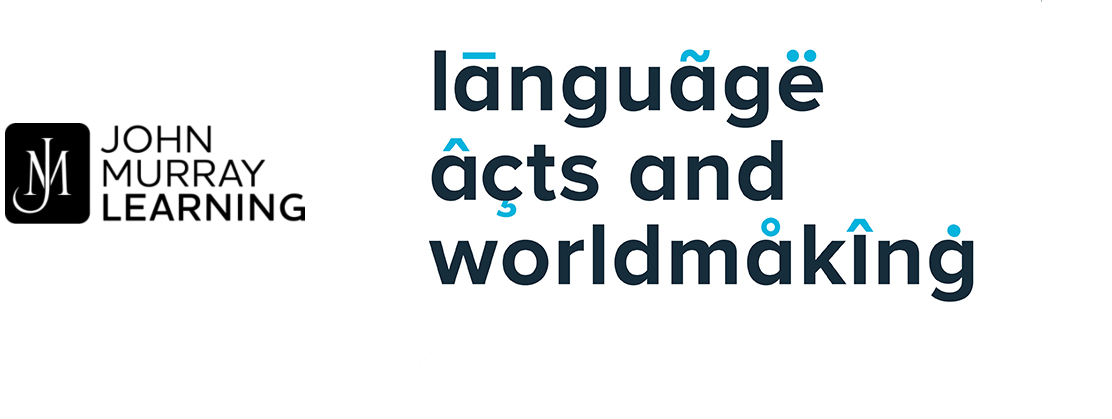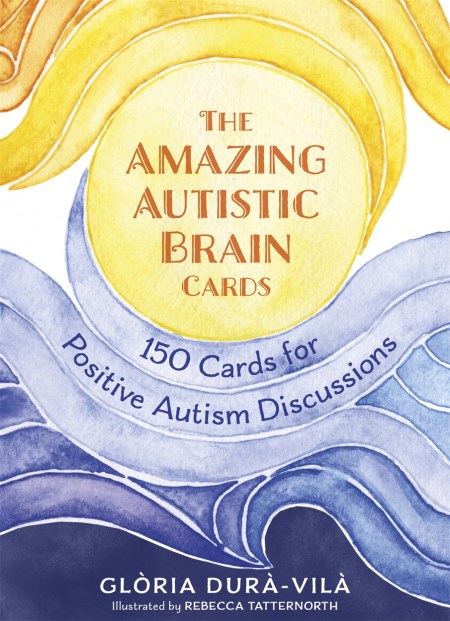This deck of cards is a resource to help professionals, parents and anyone working with autistic young people to have discussions about an Autism diagnosis in a personalised, positive and meaningful way.
The beautifully designed cards each show a strength – such as being inquisitive or honest – or a challenge – such as sensory difficulties or understanding emotions. The pack also includes reusable blank cards which can be personalised.
The accompanying booklet provides approaches and strategies developed by Dr Dura-Vila in her clinical practice. She also shares her personal (and occasionally humorous) experiences, including tips for discussing an autism diagnosis. These accounts within inspire readers to give their best to any young person when sharing an autism diagnosis, and in the conversations that follow.
The beautifully designed cards each show a strength – such as being inquisitive or honest – or a challenge – such as sensory difficulties or understanding emotions. The pack also includes reusable blank cards which can be personalised.
The accompanying booklet provides approaches and strategies developed by Dr Dura-Vila in her clinical practice. She also shares her personal (and occasionally humorous) experiences, including tips for discussing an autism diagnosis. These accounts within inspire readers to give their best to any young person when sharing an autism diagnosis, and in the conversations that follow.
Newsletter Signup
By clicking ‘Sign Up,’ I acknowledge that I have read and agree to Hachette Book Group’s Privacy Policy and Terms of Use
Reviews
How can something so simple be so brilliant? For years, one way to describe the diagnosis of autism was to liken it to a bagful of strengths and challenges. Each person reaches into the bag and grabs a handful that are unique to themselves. Gloria Dura Vila has created such a 'bag'. Her insightful cards, beautifully and sensitively illustrated by Rebecca Tatternorth make diagnosing and understanding the uniqueness of autism a pleasure.
Gloria has created a truly wonderful resource which will support so many practitioners and parents as they introduce autism to autistic young people and others. The strategies and approaches outlined in the accompanying booklet, presented with Gloria's humour and passion, ensure that young people are supported to understand and value themselves as an individual. I can't wait to use these cards with my students.
No more nerves and clumsy conversations. The Amazing Autistic Brain Cards are a must-have resource for anyone involved in sharing and discussing an autism spectrum diagnosis with children and young people. Rather than giving a one-size-fits-all description of autism, I love that these beautifully simple cards can be used to tailor-make a portrait of autism that suits the child and celebrates their individuality.
Dr Glòria Durà-Vilà leads the way by reflecting on her extensive experience as a clinician, offering insight and guidance that I am certain will empower and equip parents and practitioners alike with the confidence to have positive conversations with children about their autism. I especially like that the cards can be adapted and revisited over time to accompany a child's own developing sense of self. This is a wonderful resource that will ultimately be of huge benefit to children and young people as they learn about themselves and what it means to be autistic...and amazing.
In addition to being an invaluable tool for professionals, Gloria's wonderfully empowering cards are a fabulous hands-on way for young people to build self-awareness, facilitate discussion and enable self-advocacy, creating a balanced and unique 'this is me' profile for themselves and others.
Gloria has found a very practical and effective way to explain strengths and challenges to a population of young people when diagnosed with Autism. Using her humour and passion she touches all the key points so vital for young people and their parents, not only to understand, but also empower themselves in life choices. Brilliant!
These cards have the potential to fundamentally change the experience of talking and learning about Autism and neurodiversity for the better. It is exciting to have such a simple and effective tool which could transform discussions at the critical point of diagnosis. They will be equally useful for any broader explorations in different settings and for lots of different purposes. Genius!

